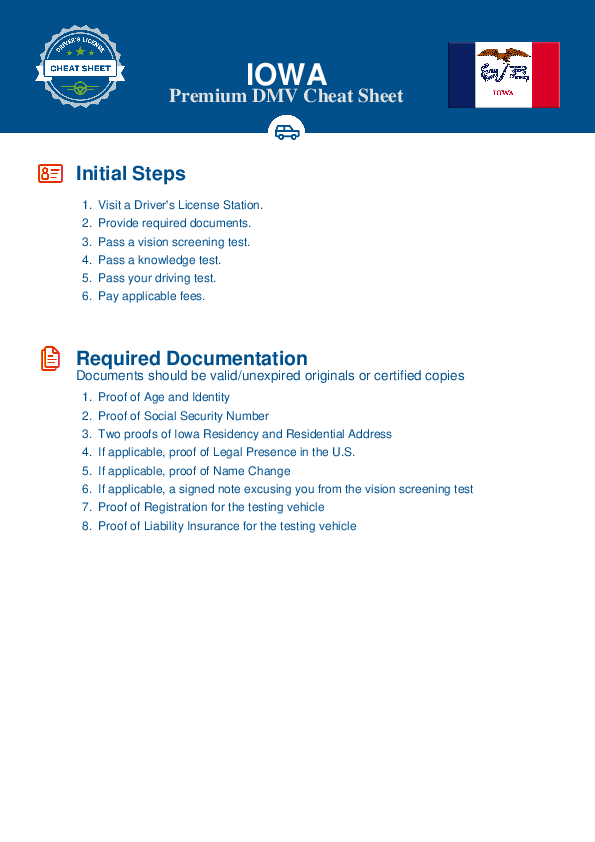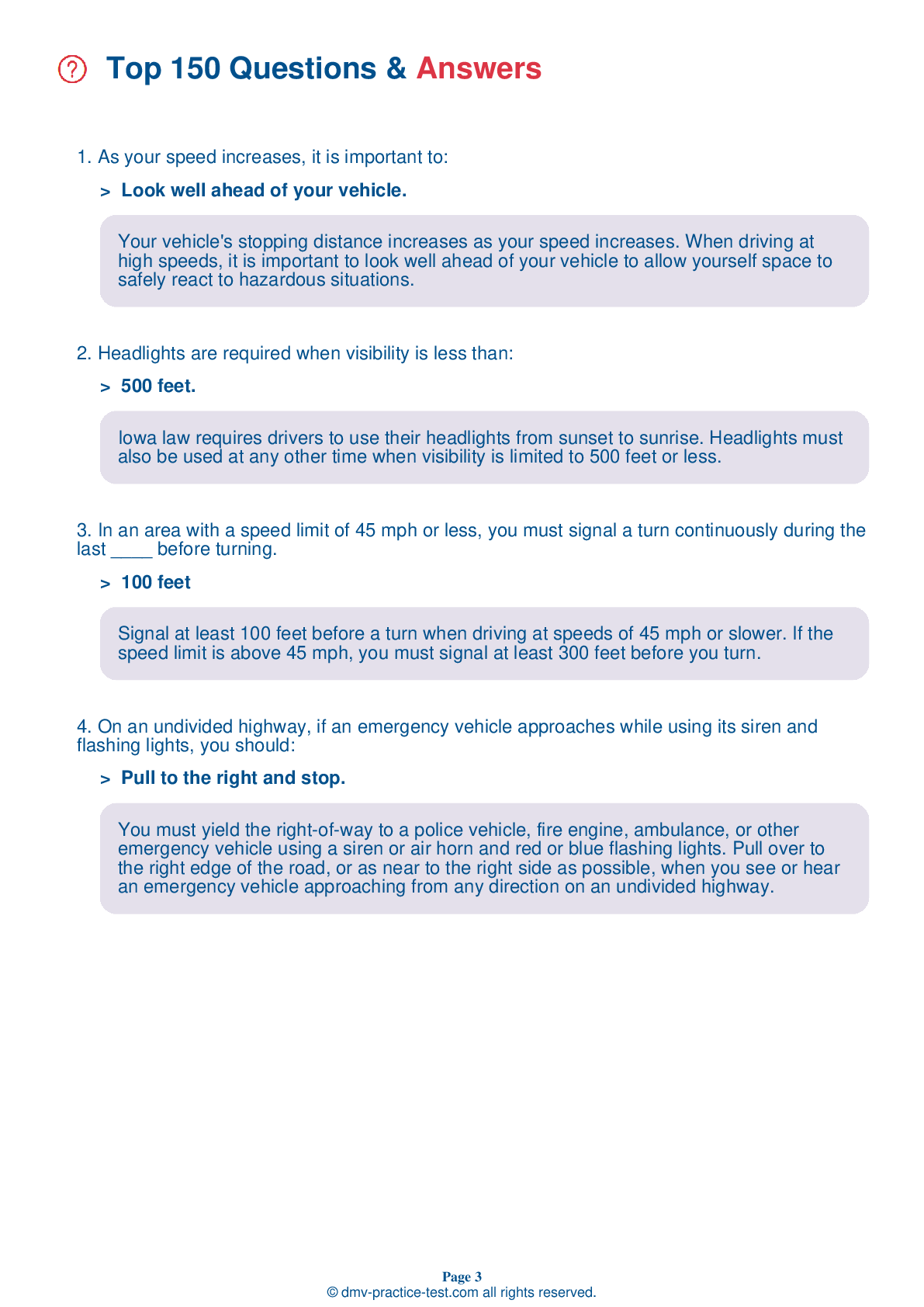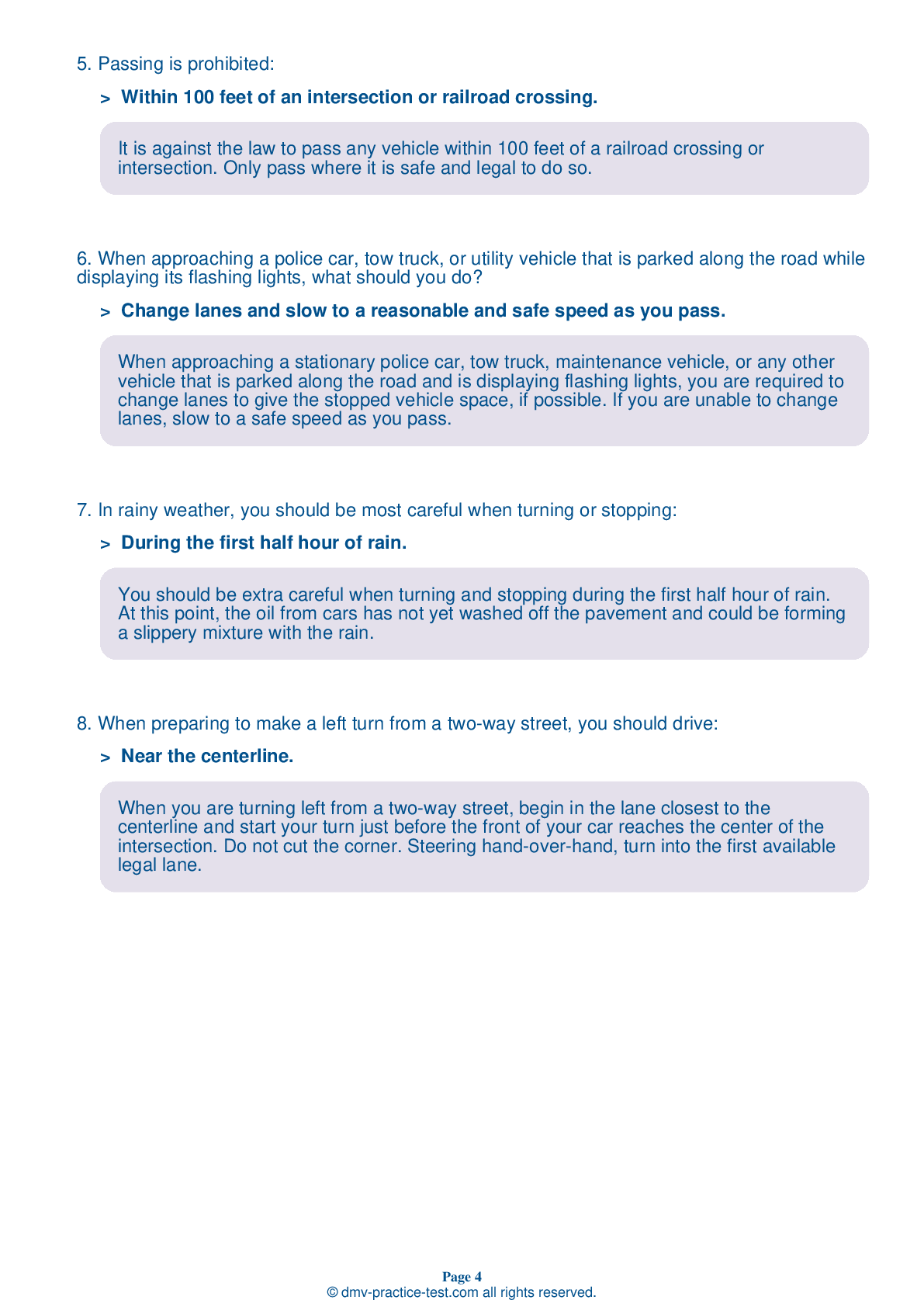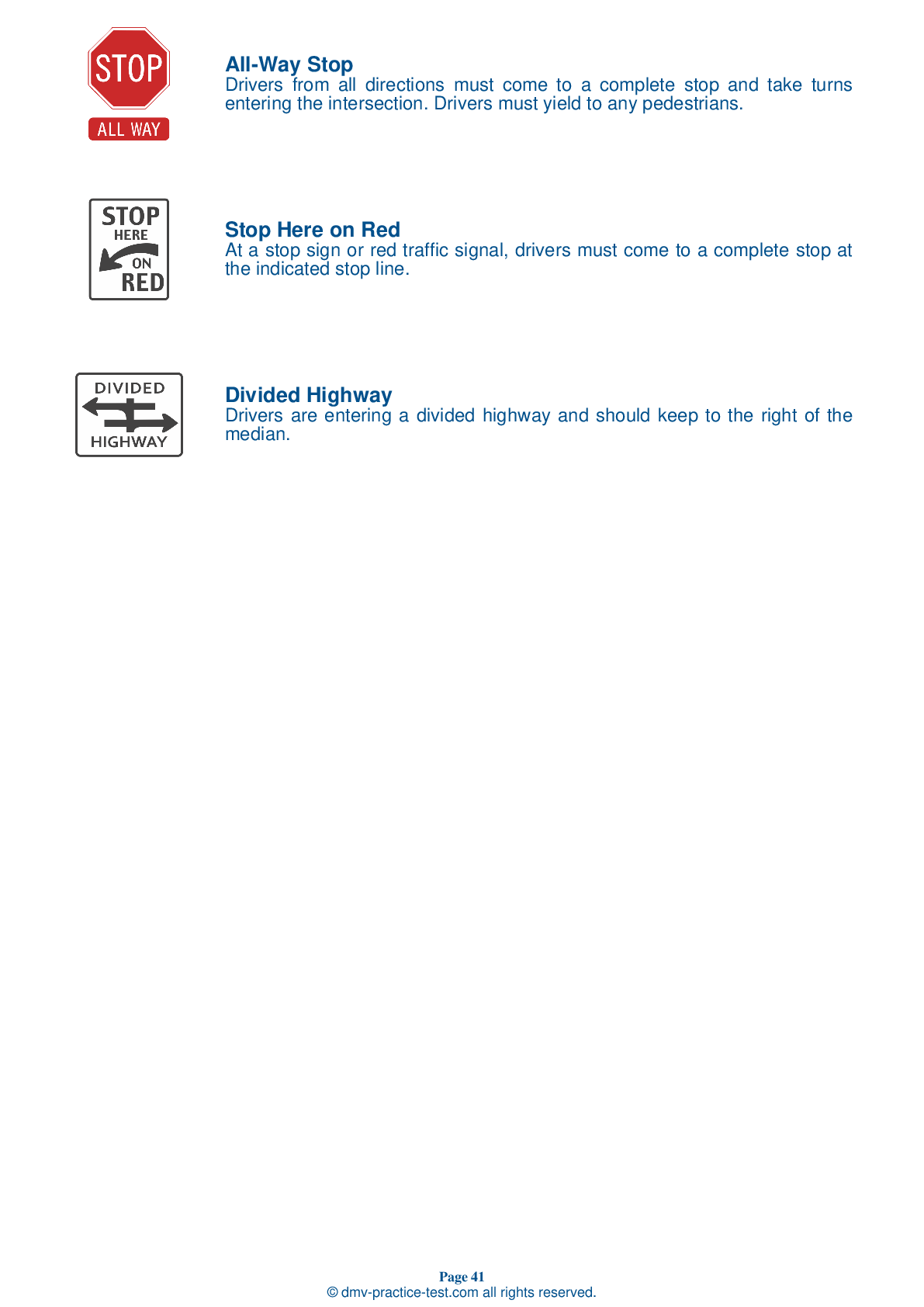FREE Iowa DMV Practice Test #24 Page 2 of 5
The DMV practise tests in Iowa have been updated for January 2026. It comprises questions based on the most important traffic signals and legislation for 2026 from the Iowa Driver Handbook. To study for the DMV driving permit test and driver's licence exam, use actual questions that are very similar (often identical!) to the DMV driving permit test and driver's licence exam.
Each question on the practise exam has a tip and explanation to help you recall the ideas. Questions about traffic rules, traffic signs, and driving statutes, as well as information from the Driver Handbook, will be included in the written portion of the official Iowa DMV test.
You must properly answer 28 of the 35 questions to receive a passing mark. To help you prepare for your Iowa instruction permit or driver's licence, take our DMV practise test.
The DMV exam is offered in a variety of languages.
Using any form of testing help will result in an automatic fail, and the DMV may take further action against your driver's licence, so avoid it.
9 . When being passed by another vehicle:
When being passed, you must yield to the passing vehicle and not increase your speed. Allow the vehicle to safely merge back into your lane.
10 . Drivers turning left must yield to:
Drivers making a left turn must yield to all vehicles approaching from the opposite direction. This includes bicycles and motorcycles.
11 . It is unlawful in Iowa for any driver to read, write, or send a text message while driving.
It is unlawful for any driver in Iowa to read, write, or send a text message while driving. Before using an electronic communication device to write, send, or read a text message, a driver must safely bring their vehicle to a complete stop off the traveled portion of the roadway.
12 . What does alcohol do to your driving skills and judgement?
Alcohol negatively affects many skills needed for safe driving, including your reaction time and ability to see clearly. It can also harm your judgment of speed and distance, lower your inhibitions, and make you more prone to taking chances.
13 . Which of the following statements are true?
When driving under ideal conditions at speeds slower than 40 mph, experienced drivers should maintain a following distance of at least two seconds. An inexperienced driver should maintain a following distance of at least three seconds. When driving under ideal conditions at speeds above 40 mph, drivers should increase their following distance to four or five seconds. Increase your following distance when anything makes conditions less than ideal.
14 . You are driving up a hill and are approaching a heavy truck from the rear. You should know that:
Drivers must be aware that large vehicles often travel at a speed slower than the posted speed limit, especially when driving on an incline, and should use caution when approaching a large vehicle from the rear. When on a hill with limited visibility, it is unlawful to pass another vehicle.
15 . When approaching a traffic signal displaying a steady green arrow, drivers:
A green arrow displayed on a traffic signal tells drivers that they may turn in the direction of the arrow. You must be in the proper lane for such a turn. Yield the right-of-way to vehicles and pedestrians already in the intersection.
16 . When sharing the road with a truck, it is important to remember that trucks generally:
Because of their size, trucks need longer distances to stop than smaller vehicles do.
See the exact questions that will be on the 2026 Iowa DMV exam.
99.2% of people who use the cheat sheet pass the FIRST TIME
LT gives us an insight on how the cheat sheet provided her with all the study questions she needed before taking her test.
Joe initially studied with the handbook and failed his test, he eventually found us online, studied and pass his test the first time around.



